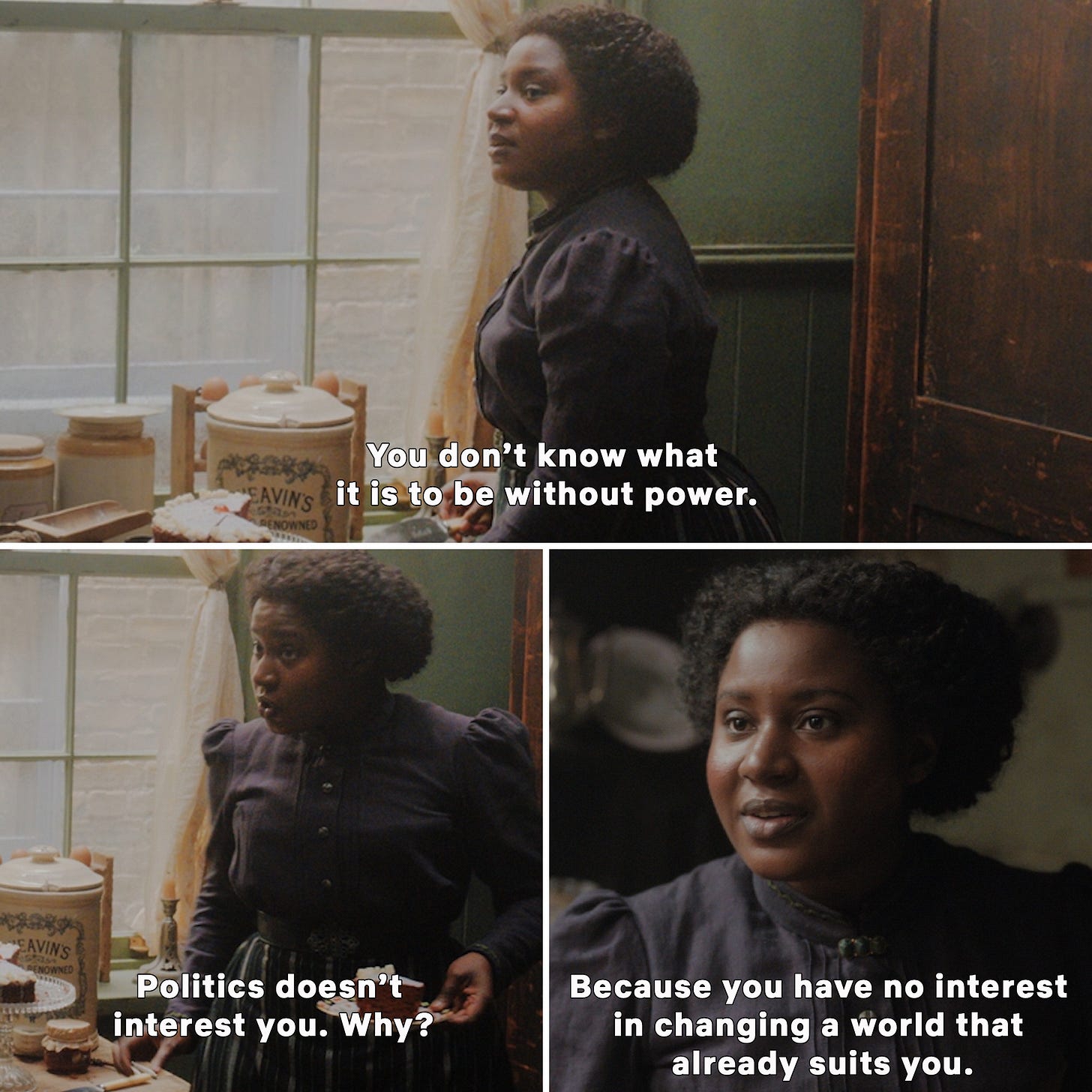Stoicism and its Discontents
Far from unassailable, this popular life philosophy has its issues.
Writing up this post just as Very Clear Cut gets knee deep into the theme of education has its benefits. For one, I get to riff on one of my pet topics without seeming too far off track.
The education of the next generation is one-half the imparting of marketable skills that are of value to our future society, and the other half a preparatory course on the challenges of adult life. In this context, the importance of one’s belief system and the philosophy with which one approaches their mortal journey cannot be understated.
In the last two decades, Stoicism has emerged to be somewhat of a crowd favorite. In even more recent times, the notion that one can stay above it all and weather the storm - given the pandemic and everything else that is happening - is an appealing one.

“How to act: Never under compulsion, out of selfishness, without forethought with misgivings. Don’t gussy up your thoughts. No surplus words or unnecessary actions. Let the spirit in you represent a man, an adult, a citizen, a Roman, a ruler. Taking up his post like a soldier and patiently awaiting his recall from life. Needing no oath or witness. Cheerfulness. Without requiring other people’s help. Or serenity supplied by others. To stand up straight — not straightened.”
— Marcus Aurelius, Meditations. III.5
“Unassailable”
On first glance, it seems like a watertight way to live: steel your own mind, do not sweat the things you cannot control, be independent, be immune to everyone else’s drama. And what better way for an ancient philosophy to appeal to the modern human being than by exuding the aesthetic of being ‘cool’? An ideal Stoic is the strong protector, the calm sage, the cool kid, the character that walks away from explosions in an action movie.
“God, grant me the serenity to accept the things I cannot change, the courage to change the things I can, and the wisdom to know the difference. Living one day at a time, enjoying one moment at a time; accepting hardship as a pathway to peace.”
— Reinhold Niebuhr, The Serenity Prayer
There is some good advice here, and there is little dispute that the ability to efficiently allocate your energy between things that you have a high probability of influencing and things that you have not is valuable. Reality is filled with curveballs that are thrown at you from unexpected places and in unexpected times, and when that happens, the Stoic argument is that acceptance is the high road and that it is always the better choice to be emotionally at peace.
A quote from Seneca goes: “It does not matter what you bear, but how you bear it.”
The First Problem
The first issue with Stoicism plays directly into Seneca’s quote, and the entire aesthetic of being a Stoic: in that Stoicism makes many promises and defines many desirable attributes, but says little about methodology. In other words, it tells you a lot about what and why, but very little in the way of how. If my house burned down in a fire one day, I would very much like to be that person who can take it in stride, brush it off with a smile, and rebuild (if I can). But how does one get there? How does one achieve such a state?
In one of our podcast episodes, our guest compared individual resilience to a “muscle” - in that it had to be strengthened through exercise, training, or experience. In most materials that expouse Stoicism, the Stoic ideal of being unfazed by difficulty and difficult situations is well defined, but the explanation for the cultivation of such an ability is not. There is a tension between the Stoic’s inherently deterministic view of reality and the desire for “empowerment”.
And perhaps, there are things that should stir up your emotions. Injustices, goals that motivate you, and the need to provide for and protect your loved ones, for example. For individuals born into extremely difficult circumstances, or into oppression - such as the Apartheid - we certainly would not expect them to “be at peace” with the situation. That brings us nicely into the next problem.
Privilege and Inaction
I sometimes like to describe Stoicism as “a philosophy for the privileged”. That starts to ring especially true in modern times when we observe that many major proponents of Stoicism in popular culture are by and large folks in privileged positions. Think Ryan Holiday and Silicon Valley employees.
Surely, it is easier to preach stoicism when you are not staring down the barrel of a gun half the time, and have no staggering financial problems to worry about for the foreseeable future. Surely, it would be unreasonable to tell Viktor Frankl and other survivors of the Holocaust that a stoic mindset would have eased their suffering, while one basks in 20/20 hindsight, reading Man’s Search for Meaning.
It also bears mentioning that emotion and passion - including those that arise as a result of pain - help to spur folks into action when fighting for a cause. The LGBTIQA+ community did not make progress by “accepting what they could not control”. And what is the definition of “something you cannot control” anyway? Some things in life are undoubtedly difficult to handle, but may still offer opportunities for one to exert some level of influence. The Stoic canon lacks sufficient guidance on this very important piece. Moreover, Stoics who are in positions of power - in a bid to “avoid drama” - may not experience the spark of passion that is so important when supporting worthy causes and the less privileged in society as allies.
The Importance of Being Idle Emotion
I sold my soul for the second time, 'cause the man don't pay me
I begged my landlord for some more time, he said, "Son, the bill's waiting"
My best friend called me the other night, he said, "Man, are you crazy?"
My girlfriend told me to get a life, she said, "Boy, you lazy!"
But I don't mind - as long as there's a bed beneath the stars that shine
I'll be fine, if you give me a minute - a man's got a limit
I can't get a life if my heart's not in it
— Oasis, “The Importance of Being Idle” (2005)
I love this song. Absolutely adore it. And it also happens to hint at two serious problems with a stoic approach to living: that it hurts your chances at a fulfilling life, and ignores the positive value of emotions.
Life is filled with both positive experiences and negative ones. Fully experiencing the spectrum is part of living well. Negative experiences and emotions, such as disappointment and loss, serve to accentuate and uplift the things that one values and loves. If one is sad because they lost something, it is only because they wholeheartedly valued it. Steeling yourself to losing something before you actually lose it, or giving up agency to life’s vicissitudes before they happen, puts you at risk of not fully experiencing joy, and love. It is an avoidant strategy.
Seneca once stated: “The man who has anticipated the coming of troubles takes away their power when they arrive.”
Well, to that I say: there is no guarantee that knowing what will happen takes anything away from its eventual impact. Tangentially, anticipating coming troubles is cognitive and spiritual capacity taken away from enjoying the good things that life has to offer.
Additionally, the value of emotions really shines through in the context of human relationships. You may be a Stoic - the problem is that your loved ones may not be. Taking a stoic approach to life events, and adopting a mindset of minimizing pain and negative emotions, can make one insensitive to the issues that those close to them are facing. It also creates the risk of projecting high expectations of emotional resilience onto others. For example, casually telling a romantic partner who is undergoing an emotional crisis to “be strong” and saying “it’s not a big deal”, can definitely hurt the relationship.
Machismo
While there has been more female representation in the modern Stoic community, the language of ancient Stoicism leaves little room for women. The traditional ideal of masculine strength, as seen in the philosophy’s treatment of emotions, is revealed in many of its tenets.
Toxic masculinity is a present problem, and some tenets of Stoicism, such as a strict alignment to rationality and “anti-passion-ism” (not being psychologically subject to anything – or manipulated and moved by it - and being completely self-sufficient), can serve to exacerbate unhealthy traits. These include emotional avoidance, emotional ineptitude, social ineptitude, and not knowing how to seek help when it is needed.
A Philosophy of Life?
Pondering over which life philosophy you align with already makes you more thoughtful than most. However, I would encourage the reader to avoid the perennial trap of our social media-dominated modern world: that of placing too much importance on labels. Liking only some aspects of Stoicism does not mean you have to be “a Stoic”. Your dreams of becoming the Übermensch does not make you a nihilist. Being a Buddhist does not mean that you cannot be pragmatic as well.
If life philosophies were little art pieces in a souvenir shop that we could pick and choose from, I would be that person who once bought Stoicism - but have since returned it to the store. How about you?
For more writings by Leoson, visit his substack at interdisciplinary.substack.com.
Check out our podcast on Spotify, and tune in to our show on Facebook!





